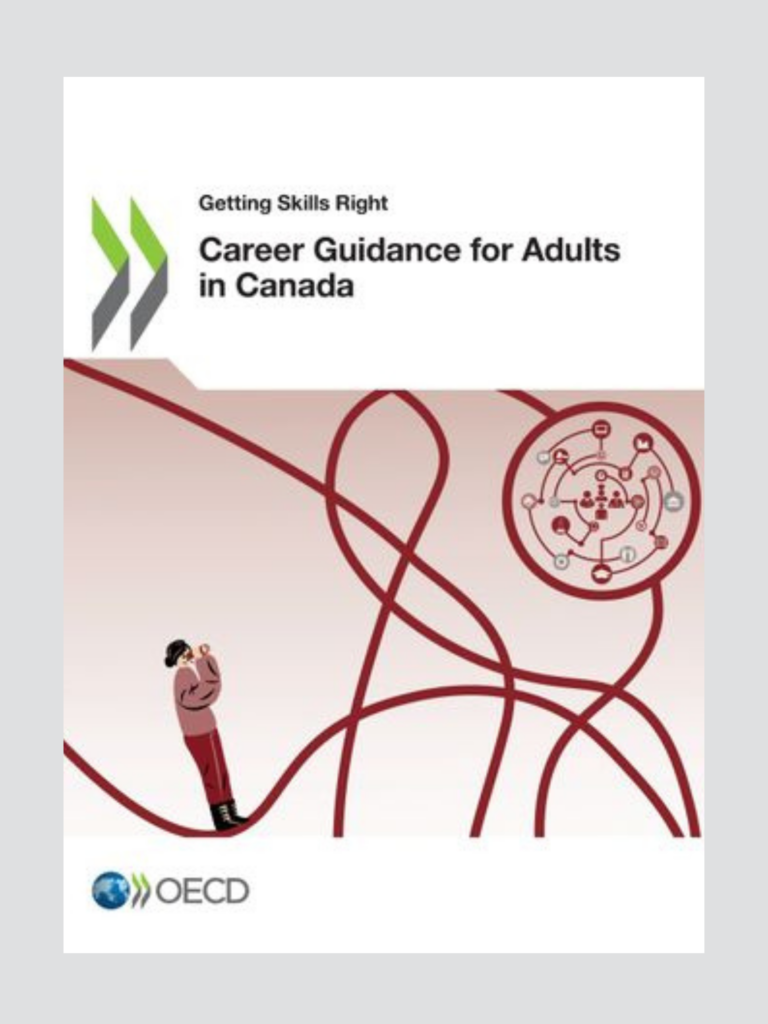Career guidance for adults in Canada
In the context of considerable labour market change, many adults in Canada are being challenged to consider alternative career paths, and to re- or up- skill or retrain. Career guidance has the potential to facilitate employment transitions: not only from the education system to the labour market, but also from unemployment to employment, and from declining to growing sectors.
This study, published by the Organisation for Economic Co-operation and Development (OECD) in collaboration with the Future Skills Centre and the Labour Market Information Council (LMIC), assesses the career guidance services that are available for adults in Canada, and puts them into an international perspective. New survey data show that Canada performs well in an OECD comparison with respect to the quality of career guidance, but there is room to strengthen the provision and accessibility of services. The report provides concrete recommendations to encourage greater and more inclusive use of adult career services, and to promote high-quality service provision.

Key Findings
While high satisfaction rates and good outcomes from users give the impression of high guidance quality in Canada, this must be tempered against low participation rates. Only 19% of adults in Canada used career guidance in the last five years, compared with 39% of adults across all countries in the survey.
Understanding the reasons why Canadian adults do not use career services could spark thinking about how coverage and inclusion might be improved. The most common reason reported was simply not feeling the need to use career guidance services (49%) a share that is on par with the average in other surveyed countries (50%).
Canadian adults use career guidance services much less than their counterparts in other countries. Adults in Canada are particularly less likely to use career guidance when they want to progress in their current job or when choosing an education or training opportunity.
This work is published under the responsibility of the Secretary-General of the OECD; © OECD 2022; The use of this work, whether digital or print, is governed by the Terms and Conditions to be found at http://www.oecd.org/termsandconditions.




